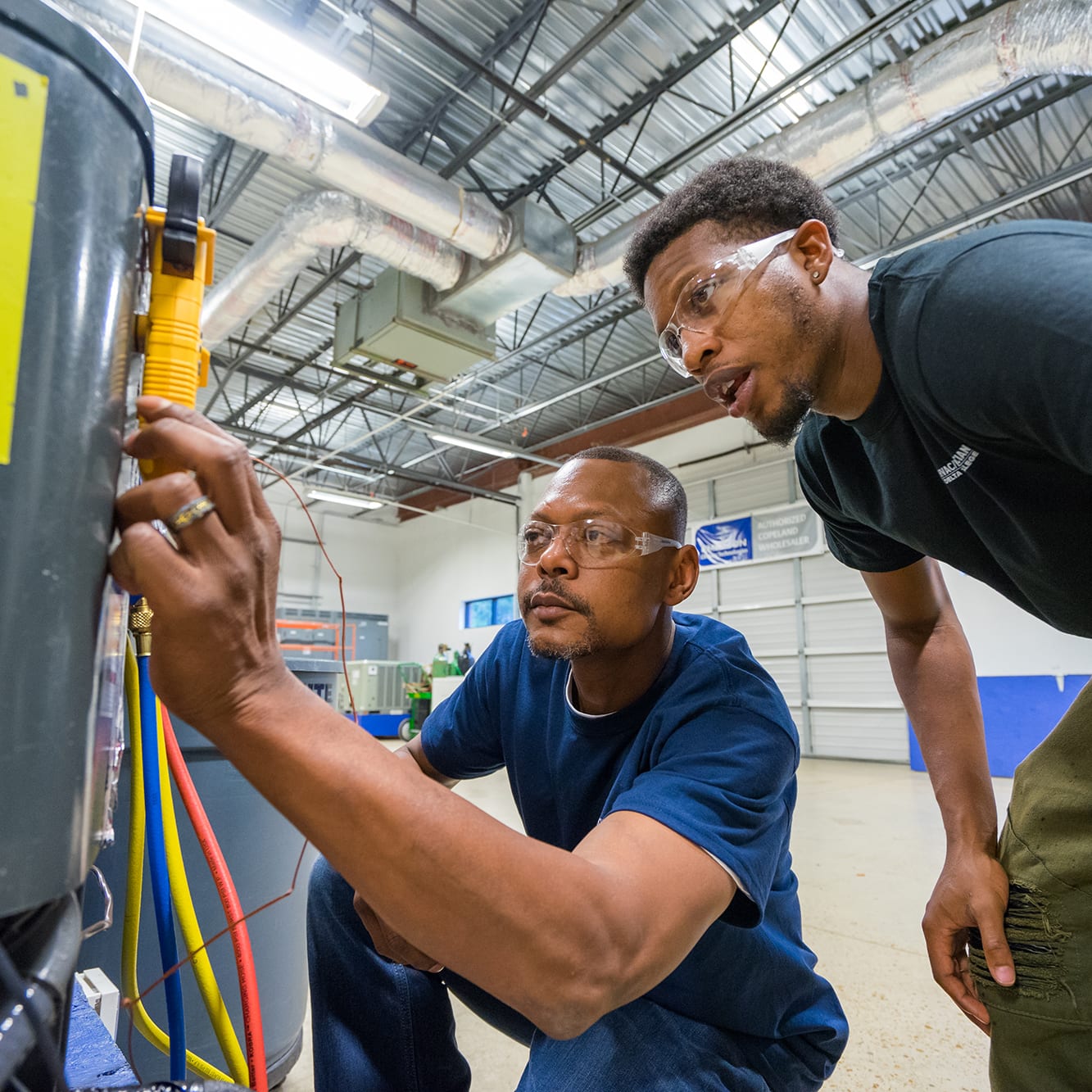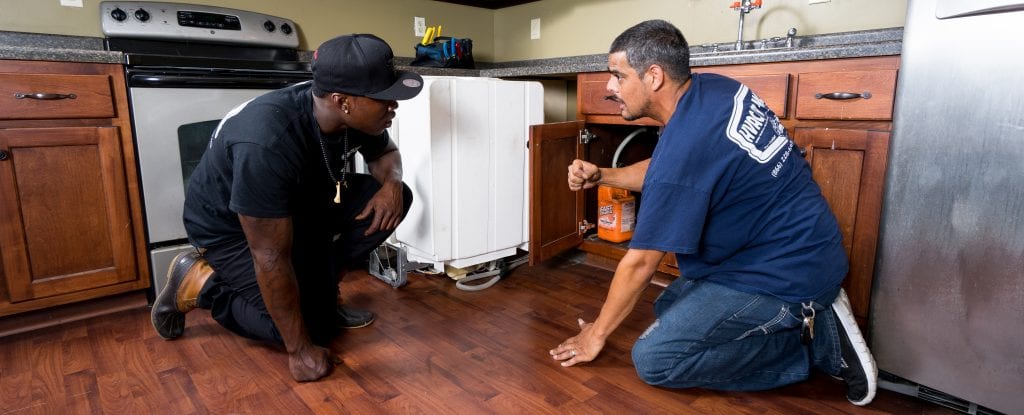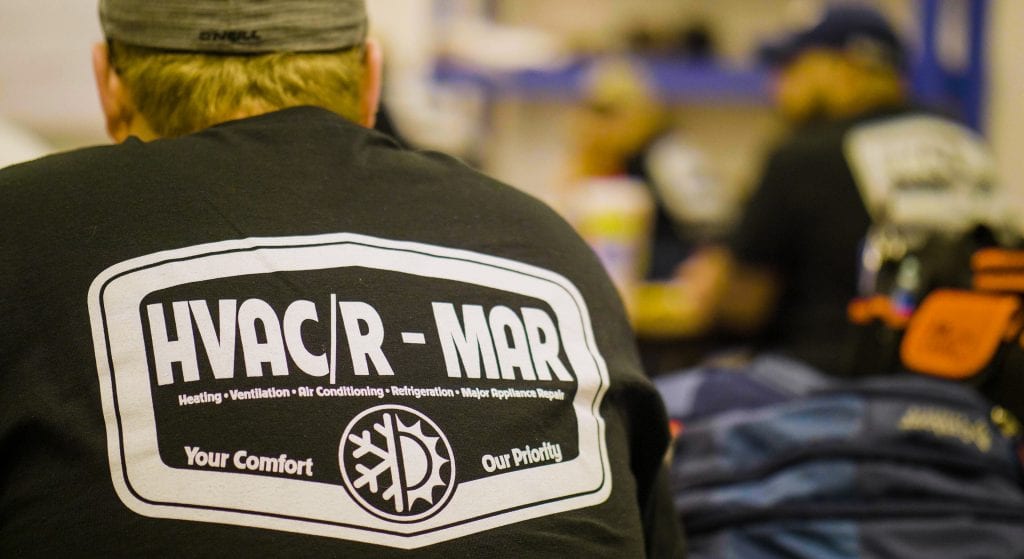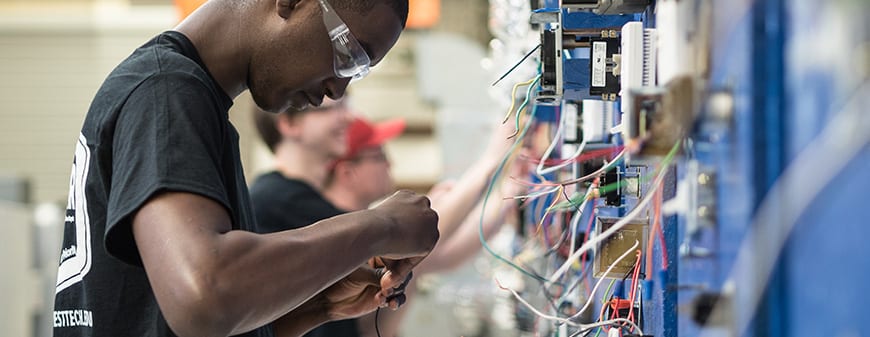HVAC, which stands for Heating, Ventilation and Air Conditioning, is a robust industry with various different types of career paths. One of the primary career options is an HVAC technician. HVAC careers are generally focused around building, maintaining, selling, replacing, and repairing HVAC systems.
HVAC Career Overview
Like any career choice, understanding what a job entails is a good first step to determining whether it’s a good fit for you. The HVAC industry has many different types of jobs available within it, each with its own specific duties and benefits.People usually think about an HVAC technician, mechanic or installer when they think about an HVAC career. These are the people on the front lines directly managing HVAC systems. Other types of advanced HVAC careers include managers, instructors and dispatchers, which are closely linked in the field of HVAC, but are actually very different career paths.What are the pros and cons of a career as an HVAC technician, and what is an HVAC tech in the first place?
Pros and Cons of HVAC Technician Career
Type of Work
A career as an HVAC technician (also sometimes called a HVAC mechanic or installer) could be a great fit for mechanically-minded people who like to work with their hands, solve problems and fix machines on a daily basis.The majority of the job duties of an HVAC technician entail managing complex HVAC systems in buildings, including:
- Cleaning, inspecting and installing HVAC systems or components to ensure proper functioning
- Diagnosing and repairing problems
- Interacting with customers to discuss the issues and recommend solutions
- Keeping records, following government regulations and disposing of waste appropriately.
The overall goal is to make sure that clients have working heating and cooling systems in their homes, offices and workplaces. If you are not mechanically-minded or interested in the mechanical trades, this career may not be for you. But if you are, the work can be diverse and exciting.
Work Environment
Salary
Job Requirements
What makes a good HVAC tech? According to the BLS, the following characteristics are generally found in HVAC techs:
- Detail-oriented
- Mechanical skills
- Math skills
- Physical strength
- Physical stamina
- Customer service skills
- Time management skills
- Troubleshooting skills
Training Requirements
If you are wondering how to become an HVAC tech, the answer is that some training or experience is generally required since knowledge of HVAC systems is essential to the job. Vocational schools like Midwest Technical Institute (MTI) offer HVAC technician training to provide the hands-on training students need to prepare them for an entry-level HVAC job.
Is HVAC the Right Career for You?
If you enjoy having different tasks and challenges day-to-day, training to become an HVAC/R technician could be a great fit for you.To learn more about MTI’s HVAC/R-MAR Technician Program, contact our Admissions Team.
Sources
-
https://www.bls.gov/ooh/installation-maintenance-and-repair/heating-air-conditioning-and-refrigeration-mechanics-and-installers.htm#tab-2
https://www.bls.gov/ooh/installation-maintenance-and-repair/heating-air-conditioning-and-refrigeration-mechanics-and-installers.htm#tab-3
https://www.bls.gov/ooh/installation-maintenance-and-repair/heating-air-conditioning-and-refrigeration-mechanics-and-installers.htm#tab-1
https://www.bls.gov/ooh/installation-maintenance-and-repair/heating-air-conditioning-and-refrigeration-mechanics-and-installers.htm#tab-5
https://www.bls.gov/ooh/installation-maintenance-and-repair/heating-air-conditioning-and-refrigeration-mechanics-and-installers.htm#tab-4



